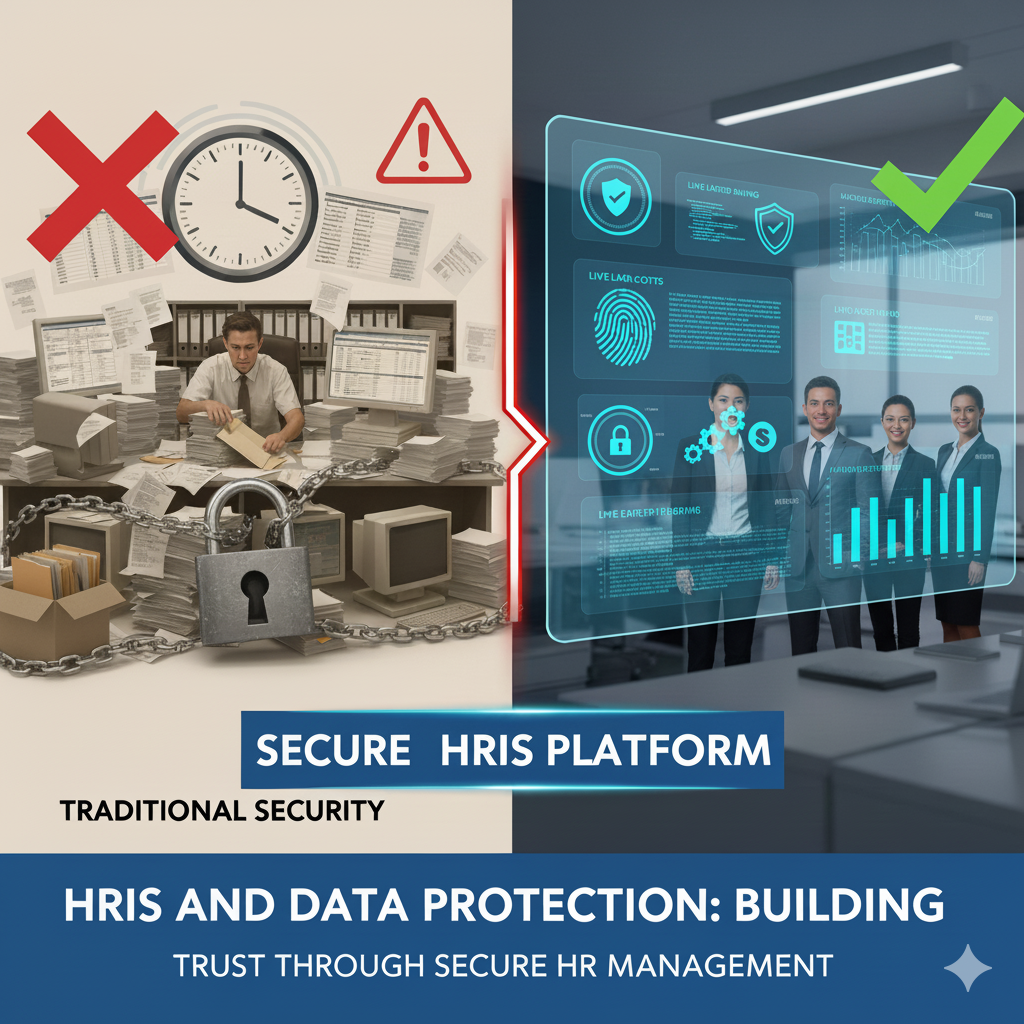In today’s digital-first workplace, HR departments manage a vast amount of sensitive employee data — from personal details and payroll records to performance evaluations and benefits information. With this comes a critical responsibility: ensuring that every piece of data is protected, confidential, and securely managed.
As organizations shift to automated systems, the Human Resource Information System (HRIS) has become the cornerstone of digital HR management. But with convenience comes risk — and that’s where data protection and cybersecurity take center stage.
What Is HRIS and Why Security Matters
A Human Resource Information System (HRIS) centralizes HR functions such as employee records, payroll, attendance, and performance management into one platform. It’s designed to streamline processes, reduce manual work, and improve decision-making.
However, because HRIS platforms hold vast amounts of personal and financial data, they are also prime targets for data breaches and cyber threats. Protecting this information is not just about compliance — it’s about building trust with employees and stakeholders.
Key Pillars of HRIS Data Protection
Modern HRIS systems are built with robust security frameworks to ensure the integrity and confidentiality of employee data. Here are the core elements that keep HR data safe:
- Data Encryption
Sensitive data is encrypted both in transit and at rest, ensuring that even if intercepted, it cannot be read by unauthorized parties. - Access Control and Authentication
HRIS platforms use role-based access and multi-factor authentication (MFA) to ensure that only authorized users can access or modify sensitive records. - Audit Trails and Monitoring
Every data transaction within the system is logged, allowing administrators to track activity and detect suspicious behavior early. - Cloud Security and Backup Protocols
Cloud-based HRIS solutions often include automatic backups, disaster recovery options, and compliance with international data security standards such as ISO 27001 and GDPR. - Regulatory Compliance
A secure HRIS ensures compliance with data privacy laws — from the General Data Protection Regulation (GDPR) in Europe to the Data Privacy Act in the Philippines and other local regulations.
Data Protection Builds Trust and Transparency
Trust is the foundation of a successful HR strategy. Employees expect their personal information to be treated with care. When organizations invest in secure HRIS systems, they demonstrate a clear commitment to:
- Protecting privacy and confidentiality
- Ensuring legal and ethical compliance
- Maintaining transparency in data handling
- Using technology responsibly
A secure HRIS doesn’t just prevent breaches — it strengthens employee confidence in the organization’s values and culture.
The Future of Secure HR Management
As technology continues to evolve, so do cybersecurity threats. HRIS providers are now integrating AI-powered threat detection, blockchain verification, and biometric authentication to enhance system security even further.
These innovations help HR leaders:
- Detect vulnerabilities before they become breaches
- Automate compliance reporting
- Strengthen digital resilience across HR operations
In the near future, secure HR management will go beyond compliance — it will be a strategic differentiator for organizations focused on sustainability and trust.
Best Practices for Maintaining HRIS Security
To fully protect employee data, HR teams should take a proactive approach:
- Regularly update HRIS software and security patches
- Train HR staff on data privacy protocols
- Limit access based on roles and responsibilities
- Encrypt sensitive files and communications
- Conduct regular security audits and compliance checks
These practices ensure that your HRIS remains both secure and compliant — safeguarding not just data, but your organization’s reputation.
Conclusion
In an era where data is power, HRIS and data protection go hand in hand. A secure HR management system doesn’t just prevent cyber risks — it builds trust, promotes transparency, and strengthens organizational credibility.
By investing in robust HRIS security measures, businesses can ensure that employee data remains safe, private, and compliant — paving the way for a more secure, trusted, and digital-ready HR future.

